TTC – Building a Better Vocabulary Course
$334.95 Original price was: $334.95.$76.00Current price is: $76.00.
Digital Download: You will receive a download link via your order email after successful payment.
Format: [Webrip – 36 m4v , 1 Document – PDF] | 16.820 GB
What does the word bombast have to do with cushion stuffing? What is the difference between specious and spurious? Would you want someone to call you a snollygoster?
The hallmark of a powerful vocabulary is not simply knowing many words; rather, it’s knowing the exact word to use in a specific context or situation. A great vocabulary can enhance your speaking, writing, and even thinking skills. This course will boost your vocabulary, whether you want to enhance your personal lexicon, write or speak more articulately in professional settings, or advance your knowledge of the English language. For anyone who has ever grasped for the perfect word at a particular moment, this course provides a research-based and enjoyable method for improving your vocabulary.
Building a Better Vocabulary,taught by Professor Kevin Flanigan of West Chester University of Pennsylvania, offers an intriguing look at the nuts and bolts of English, teaches you the etymology (history) and morphology (structure) of words, and delves into the cognitive science behind committing new words to long-term memory.
Any lifelong learner can build a better vocabulary with these engaging lectures, but they will be particularly useful for:
- readers who want a greater appreciation of literature;
- writers or speakers seeking the “just right” word;
- those who are intellectually curious about language and linguistics;
- students studying for college entrance exams; and
- anyone looking to boost their working vocabulary.
By the end of the course, you will have a practical framework for continuing to build your vocabulary by discovering new words and fully mastering the nuances of familiar ones.
Harness the Way Your Brain Learns Language
Research in cognitive psychology informs Professor Flanigan’s methods for teaching vocabulary. These methods apply whether the student is a new reader, a struggling student, a person learning English as a second language, or an intellectual looking to expand his or her vocabulary.
In particular, you will learn about the five core principles of effective vocabulary learning, as illustrated here with the word factotum.
- Clear definitions: A factotum is someone hired to do a variety of jobs, someone who has many different responsibilities, or a jack-of-all-trades.
- Rich context: Batman’s butler, Alfred, is a factotum. He keeps the affairs of the Wayne estate in order, maintains and repairs the Batmobile, and even offers his employer sage advice.
- Personal connections: Think of a person in your life who is a jack-of-all-trades. When you think of the word factotum, attach it to a memory of this person.
- Exploring the morphology: The root fac is from the Latin verb facio, meaning “to make or do” and the Latin word totum means “all.” Thus, a factotum is literally someone who can do it all.
- Semantic chunking: Schema are your brain’s “file folders” which link your newly-learned word to things you already know. Connect your new word, factotum, with familiar people, as well as words that share the fac root, such as factory and manufacture.
To aid in providing clear definitions, rich context, personal connections, morphology, and schema development, Professor Flanigan organizes these lectures by theme. This allows you to fully understand the differences between closely related synonyms and gives your brain the opportunity to create connections and file new words in long-term memory.
You’ll learn a vast array of words about:
- love and hate,
- trustworthy people and liars,
- war and peace,
- praise and criticism,
- breaking and joining, and much more.
You will supplement the robust information included in the course guidebook with your own vocabulary notebook, where you can jot down personal connections to each word to further cement your knowledge.
Go Beyond the Dictionary
Cognitive scientists have proven that the brain is hard-wired to remember stories. We find it easier to remember information presented as a story than as a list of facts. Learning etymological narratives—or stories about the history of words—leverages this powerful vocabulary learning tool.
- Fighting words: Donnybrook, Ireland was known for its annual fair… and the drunken, riotous brawls that occurred there each year. When you want to describe a raucous and violent confrontation, donnybrook is the perfect word.
- From literal to figurative: In the 16th century, bombast referred to cotton stuffing for cushions. Today, the word refers to “fluffy” speech or writing that doesn’t offer any substance.
- Footlong words: Sesquipedalian, an adjective that means “given to the overuse of long words,” was inspired by the Roman poet, Horace, who often criticized others for using long, pompous-sounding words. He used the phrase sesquipedalia verba—literally “words a foot and a half long.”
A large part of a word’s etymology is its morphology, including the Latin or Greek roots from which it sprang. Approximately 70% of English vocabulary is derived from Latin or Greek affixes or roots, and the number increases to over 90% for scientific jargon. These fascinating lectures delve into affixes and roots from Latin and Greek, as well as words that English borrowed from other languages, including German, Yiddish, Japanese, Gaelic, the romance languages, and more.
If you are an avid reader, you may have previously encountered some of the words in this course. But even the most voracious reader will be surprised and delighted by these eye-opening lectures, which delve into the building blocks of the English language and reveal intriguing new nuances to words you thought you knew well.
Activities to Test Your Knowledge
Professor Flanigan’s expert instruction helps you build vocabulary knowledge that is broad, deep, and flexible. By the end of these 36 fascinating lectures, you should:
- be familiar with more words,
- know the differences between similar words for the same concept,
- be able to make connections between new words and familiar ones,
- be better able to infer a word’s meanings from its morphology and context, and
- apply new words confidently when you speak or write.
Vocabulary games can help achieve these goals—and they are fun whether you are testing your knowledge alone or competing with friends or family members. They are particularly helpful with creating a flexible vocabulary, as they provide opportunities to use and think about words in novel and creative ways.
- Riddles: Learn a clever game that pairs a rhyming answer comprised of familiar words to a question full of sophisticated—perhaps even sesquipedalian—ones.
- Clue Review: Sit in the “hot seat” and test your knowledge with a partner. The hard part? Both of you must know the word and its definition to win!
- Taboo: This popular game has a lot in common with effective strategies for vocabulary learners. Taboo will have you thinking flexibly, making connections, using synonyms, antonyms, and related words—and improving your vocabulary while having fun.
Experience the Joy of Words
In the words of the Greek historian Plutarch, “The mind is not a vessel to be filled, but a fire to be kindled.” The goal of Building a Better Vocabulary, then, is not to cram your mind with new words, but to kindle a passion for the process by which words are created and the beauty of the words you read, speak, and hear every day. These 36 lectures will certainly set your mind ablaze and change the way you experience the world.
Professor Flanigan’s approach to learning vocabulary makes each lecture a joy to experience. As a former reading specialist and literacy coach, he understands the cognitive science behind language acquisition and is able to present each new word in a way that makes it immediately memorable.
But more importantly, he teaches you these tips and strategies so you can apply them whenever you learn a new word. By the end of the course, you’ll have a vocabulary notebook filled with valuable notes, sketches, stories, and strategies—and you’ll be eager to start reading and update it with new words you encounter.
As you may have already guessed, you would not want to be called a snollygoster; it is an antiquated term of contempt for a shrewd, unscrupulous person.
Get Download TTC – Building a Better Vocabulary Course at imcourse.biz today!
Delivery Method
– After your purchase, you’ll see a View your orders link which goes to the Downloads page. Here, you can download all the files associated with your order.
– Downloads are available once your payment is confirmed, we’ll also send you a download notification email separate from any transaction notification emails you receive from imcourse.biz.
– Since it is a digital copy, our suggestion is to download and save it to your hard drive. In case the link is broken for any reason, please contact us and we will resend the new download link.
– If you cannot find the download link, please don’t worry about that. We will update and notify you as soon as possible at 8:00 AM – 8:00 PM (UTC+8).
Thank You For Shopping With Us!
Be the first to review “TTC – Building a Better Vocabulary Course” Cancel reply
Related Products
Everything Else
Medical & Health
Everything Else
Medical & Health
TTC – Outsmart Yourself: Brain-Based Strategies to a Better You
Psychology & Body Language
Psychology & Body Language
Psychology & Body Language
Psychology & Body Language



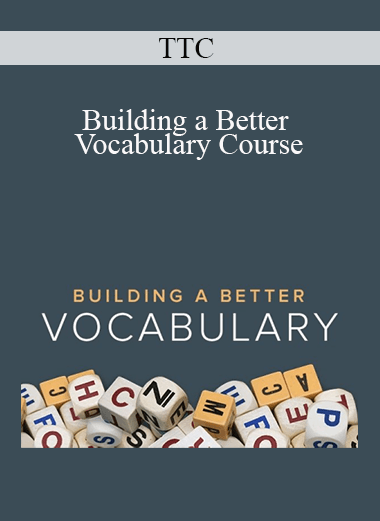
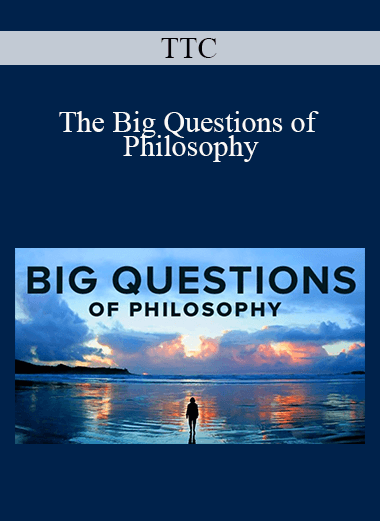
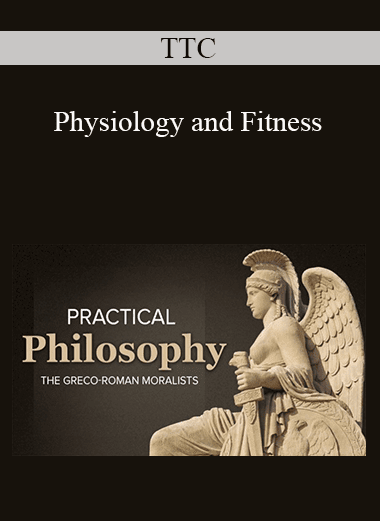
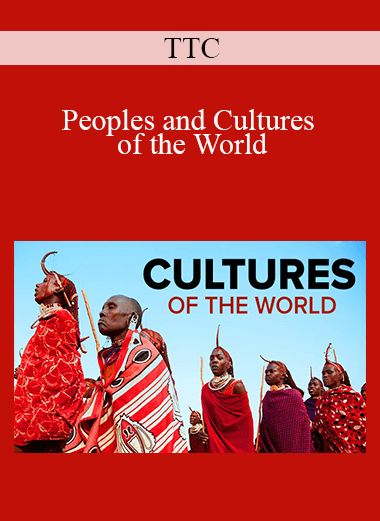


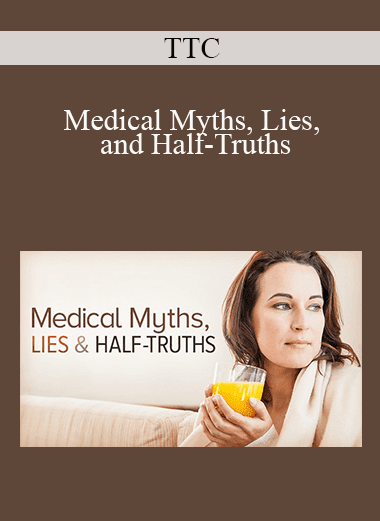

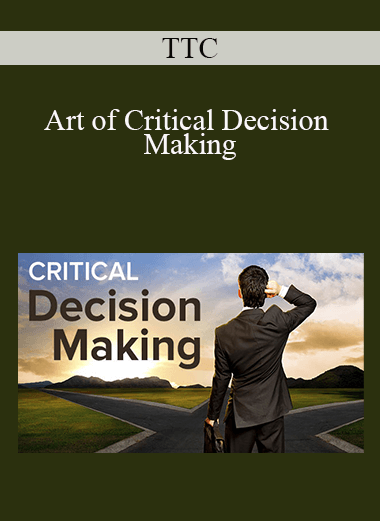
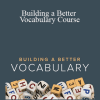
10 reviews for TTC – Building a Better Vocabulary Course
There are no reviews yet.